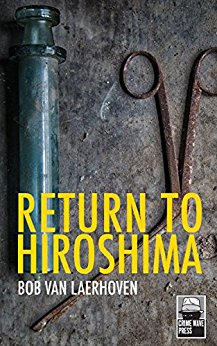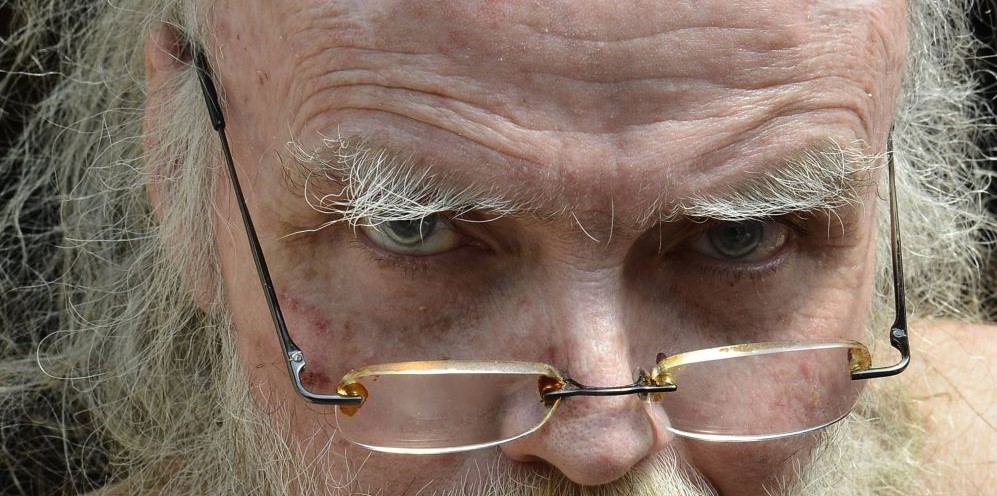
Hi,
Is “Return to Hiroshima” still relevant in this era? Decide for yourself after reading this guest post on Toe Six Press:
Click: https://t.co/3kV3SBoBeE?amp=1
Or read:
Author Article: Literature Resonates by Bob Van Laerhoven
Lately, many people ask me if I think literature is still meaningful in this era of rapidly progressing digital technology: fast changing communication, the many ways of experiencing movies, streamed television series and news.
Literature does matter in our time. In any era.
I’ll explain this with an example of my own work.
Return to Hiroshima is my latest novel in English. As the first city ever struck by a nuclear bomb, Hiroshima became an iconic symbol. A novel with that city in the title inevitably refers to that moment in time that changed human history forever.
Why write a work of fiction in which the nuclear detonation plays such an important role? It’s easier, and faster, to stream a documentary about the subject, or to be carried away by watching an after-the-bomb movie.
That would make us informed, correct?
In a way, yes, but, in my eyes, literature has an added value. It can provoke in us an empathic understanding of the consequences of nuclear warfare. That’s something else than being informed.
Moreover, are we as informed as we think we are? The answer is a bone-dry “no”. Mass-media and social networks spread “news bytes” every second around the globe but have desensitized us to a certain degree to the deeper meaning – or consequences – of the experience behind information.
What do you think about the heightened possibility of a WWIII, which has been all over the news lately?
***
Tensions are on the rise. A new World War is nearer than ever since the end of the Cold War. Democratic regimes seem to loose the battle against dangerous demagogic populists and dictators: Kim Jong-un in North Korea, Recep Tayyip Erdogan in Turkey, Vladimir Putin in Russia, and Viktor Orbán in Hungary, to name but a few.
Never before was the turbulent Middle East such a chaos of shifting alliances and growing animosity. Iran and Saudi-Arabia are competing for hegemony in the region and build nuclear facilities that can be used to produce nuclear weapons. The US, Russia, and Turkey – with China looming at the horizon – support different factions in the civil war in Syria… They are allies today and enemies tomorrow. No-one seems to have a sound strategy, a solution, for the region.
It’s obvious that the seemingly endless Syrian civil war could become the trigger of a new worldwide conflict. The airstrike in April of the coalition of US, UK and French forces on the chemical weapon installations of Bashar al Assad’s regime triggered so much international unease that the most important question for the coming months (years?) seems to become: how close are we to WWIII?
People tend to react to this question with a curiously abstract resignation. When prodded a bit, they usually confess that they can’t fathom how it would be, a nuclear conflict across the globe. Usually they end the conversation with an uneasy, “They won’t let it come that far, will they? I can’t imagine they would.“
***
One of the problems of the modern digital society is precisely that mass-media and social networks have wreaked havoc on our ability to use our imagination. As a result, the all too real possibility of a nuclear WWIII seems inconceivable.
And that, my dear friends, is truly dangerous. Our leaders are not smarter, wiser, or more mature than we are. And they sure do not have more imagination… except in one area – their endless dreams of their growing power.
This is the point where literature can step in. You may have trouble imagining what a nuclear conflict would be like, but literature can. Moreover, it does this on a one-on-one basis.
A one-on-one basis in this era of mass-communication? Do I hear your Gargantuan laugh booming?
I like movies and television series, even games and social networks, as much as anybody. But I notice that, when spending too much time with these media, my level of thinking is reduced to a receptive, confined mode. The essence of a story often slips away from me like water from a seal.
This is not the case when I read. A novel resonates within me. Words can convey sensations that even the most sophisticated visual media cannot. Words can vibrate with layers of meaning, they can produce flashes of feeling (which is different than experiencing emotion), and they can make the reader emotionally receptive. The power to step into the story, not wandering on the outskirts of it, is readily available.
I know, I know: you’ve heard this story before. Since the advent of mass-media, countless philosophers and artists have hammered on similar reasoning. You’re probably sick and tired of being advised to read fiction. Why should you, when watching movies is so much easier?
You may argue reading novels takes time, a certain effort, which is getting more difficult with every minute. Stress on the job, stress in traffic-jams, stress at home with children. Stress of not having posted a witty message on Facebook for two days…..
You have every right to think so, but in my view, literature, more than any other art-form or entertainment, gives you the opportunity to interrogate yourself about the meaning of life: what exactly power or wealth is, how the world is evolving, what kind of society we live in…. The list is endless.
To interrogate yourself is a lot different than being shown what it is all about.
It’s not per se better.
But definitely different.
***
I admit willingly that I present the situation rather black-and-white in this post. But so is the question I hear so often: do you really think that literature can offer something more than, say, Netflix? It’s nearly always about who or what wins, not about differences. We don’t like differences anymore; we want to see winners and losers.
And that, dear friends, is a dangerous attitude, won’t you agree?
So, as an experiment, try something different. Watch a thrilling, shocking movie about the consequences of a nuclear conflict. There are a lot of gripping movies about that theme out there.
And, afterwards, read a novel about the same subject. There are a lot of gripping, passionate novels out there with this theme.
I want to share a few lines with you from Return to Hiroshima, a story set in Japan in 1995. In one of the chapters, a Seizon-cha, a survivor of the nuclear bomb called “Little Boy”, recalls some of the scenes he witnessed and could never forget.
***
A woman staggered past the burning buildings with a baby in her arms. The heat had caused the baby’s skin to peel. He was limp and motionless in her arms.
A man tugged at the body of a teenager buried under the rubble. The boy’s skull was cracked open and brain tissue was hanging out of the wound. He had lost his right eye. He was calling out for his mother, his voice clear and steady. The man had pulled away enough rubble to see that both legs had been crushed. He tried to lift the boy. He succeeded. He continued on his way, the boy motionless in his arms.
A girl, blood gushing from her mouth, stumbled through the ruins of a school. Hands shot up from the rubble, bloody and smoldering. They tried to grab the girl by the ankles. Voices begged: “Take me with you, take me with you!” In panic she kicked at the hands and ran on, her arms outstretched as if she was blind.
Hundreds of people tried to reach the river Aioi. They screamed for help, lost direction in the ash-filled clouds of smoke, and fell exhausted to the ground before they could reach the banks of the river and baked like clay stones in the raging fire.
***
How did this excerpt make you feel?
Reading literature resonates.











You must be logged in to post a comment.